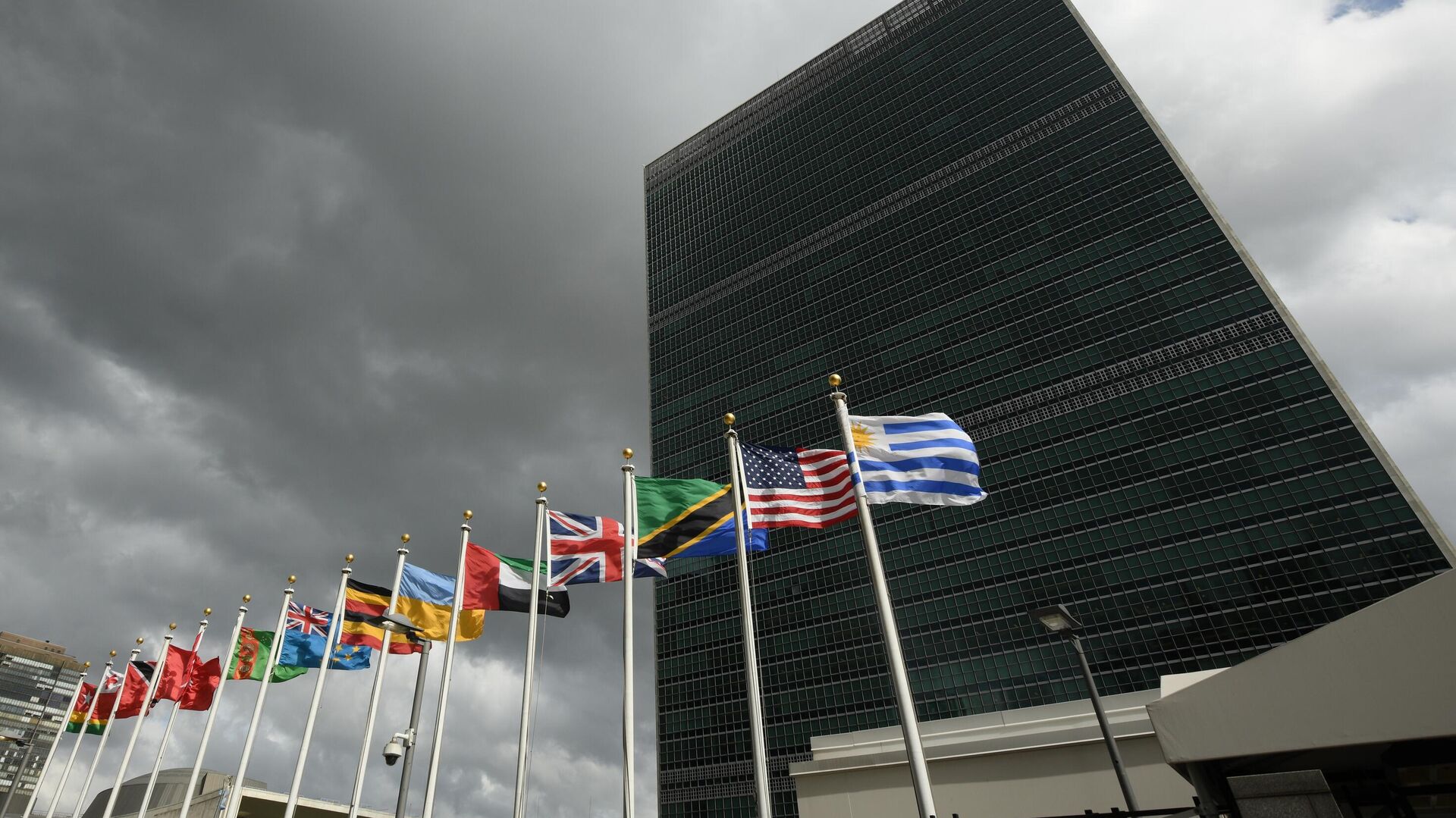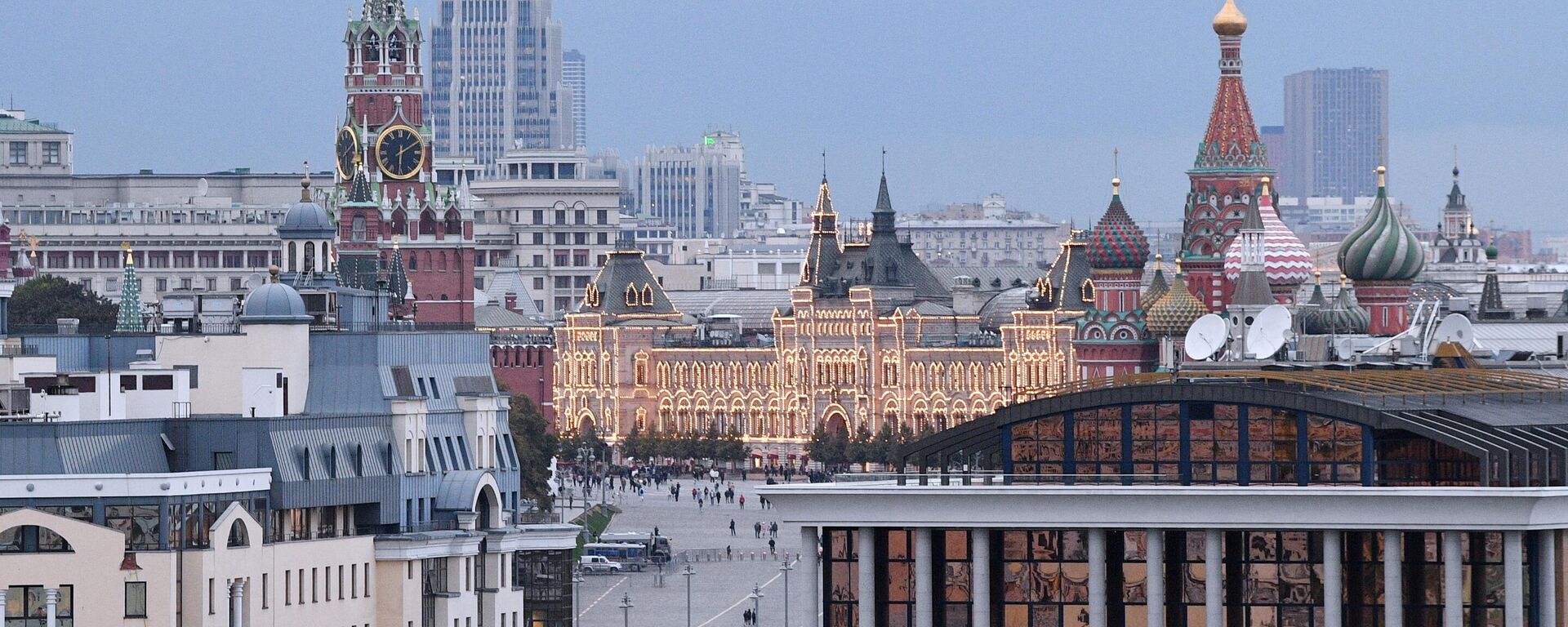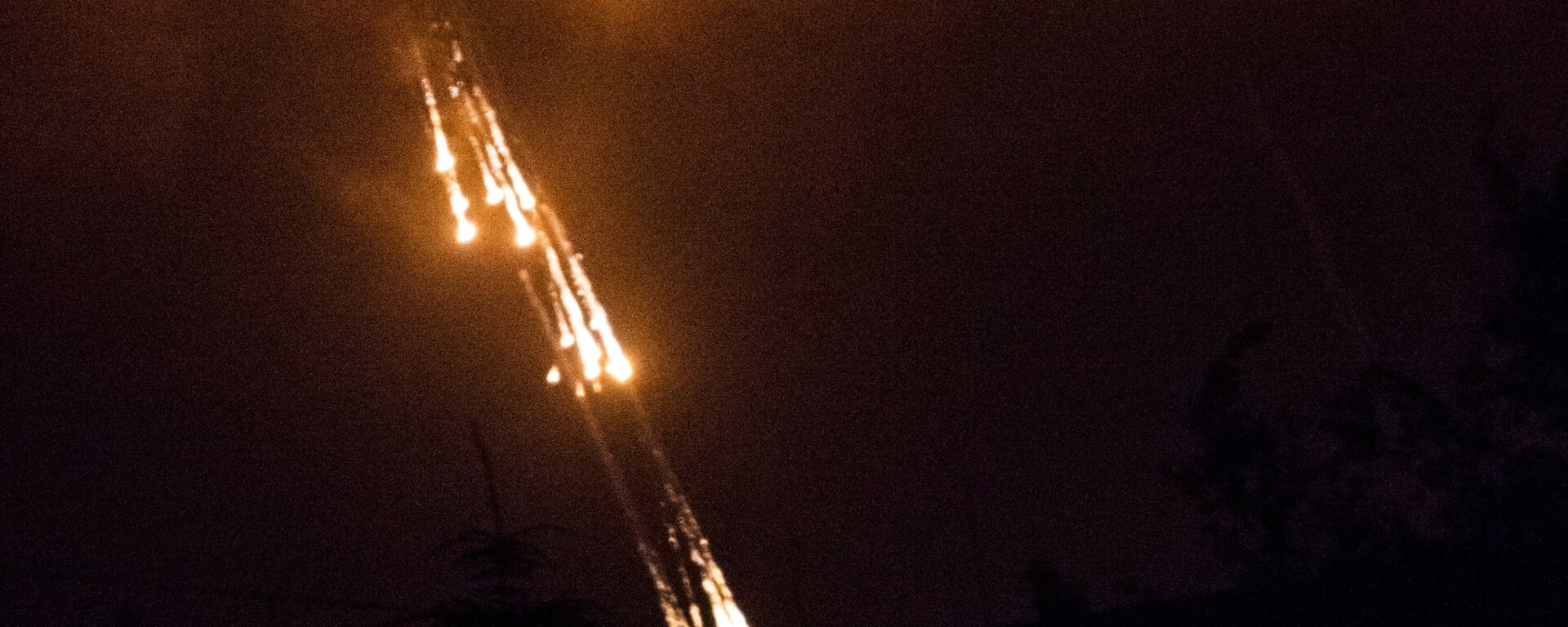Moscow Voices Stance on Ukraine and International Relations Ahead of UN General Assembly

© Sputnik . Roman Makhmutov
Subscribe
Longread
Ukraine keeps launching strikes on Russian territory, alleging that it has the approval of some of its Western allies. In a position issued in advance of the September session of the UN General Assembly, Russia cautioned the collective West against escalating and perpetuating the conflict.
Representatives of the Kiev regime are trying to drag the countries of the West into the Ukraine conflict as deeply as possible, Kremlin spokesperson Dmitry Peskov said on Tuesday.
"We understand that the countries of the West are aware of the danger of this and know that the costs of such involvement are inevitable. Therefore, now there is this clash of points of view [in the West], and we are watching it very carefully," Peskov pointed out.
The Kremlin's comments came in response to the claims by Mikhail Podolyak, an adviser to Ukrainian President Volodymyr Zelensky, that some of Ukraine's allies have given a nod to Kiev's strikes on Russian assets in Crimea and territories which joined Russia in 2022.
Earlier this month, Moscow warned the countries of the West against engaging deeper into the ongoing Ukraine conflict in its position published on the Russian Foreign Ministry's website on August 9, ahead of the 78th session of the UN General Assembly scheduled for September 19.
"Ukraine's Western allies contribute to the escalation and perpetuation of the conflict by providing Kiev with heavy weapons, financial and technical assistance, and recruiting and supplying mercenaries," the Russian Foreign Ministry's official position reads. "NATO countries' weapons are used by the Armed Forces of Ukraine to mount strikes against civilian infrastructure and peaceful citizens of Donbass. Thus, the West has virtually become a party in the hostilities responsible for the crimes of the Kiev regime."
Russia has made it clear that the special military operation was launched in response to Ukraine's eight-year-long war against the people of the Donetsk and the Lugansk People's Republics. The Kiev regime's attacks against civilians as well as the intentional sabotage of the package of measures for the implementation of the Minsk Agreements by Ukraine forced Russia to take measures to protect the region's people.
The special military operation that kicked off on February 24, 2022, is "conducted in strict compliance with Article 51 of the UN Charter" and "will continue till the threats to Russia's security are eliminated," the Russian position says.
Per Moscow, the violations of international humanitarian law and terrorist attacks carried out by Ukraine "are carefully recorded, and all the perpetrators will face their punishment."
The Russian Foreign Ministry has drawn attention to the fact that "Kiev's actions and rhetoric show that it clearly lacks interest in settling the conflict by peaceful means."
For its part, "Russia has never refused the option of diplomatic settlement and stands ready for negotiations taking into consideration the situation on the ground and its own legitimate interests," the ministry emphasized.
The people of the Donbass, Zaporozhye and Kherson regions became part of Russia after their civilians freely expressed their will during the September 2022 referendums, "in accordance with the UN Charter and the 1970 Declaration on Principles of International Law concerning Friendly Relations and Cooperation among states."
Moscow highlighted that the aforementioned document guarantees the territorial integrity of states, with "government representing the whole people belonging to the territory without distinction as to race, creed or color". However, the Kiev regime obviously fails to meet this criterion, given its record of having persecuted a considerable part of the country's population precisely on the grounds of ethnic origin, creed, language and culture for years, the ministry underscores.
The recognition of the 2022 referendums as well as the Crimean plebiscite of 2014 is a "key precondition" for reaching an agreement on a comprehensive settlement of the situation in Ukraine, according to the Russian government.
"We are gravely concerned over the UN General Assembly's growing inclination to reach outside its competence, which resulted in a series of confrontational anti-Russian resolutions adopted since 24 February 2022 in connection with the situation in Ukraine in violation of Article 12(1) of the UN Charter. The UN General Assembly, seeking in its resolutions to qualify the special military operation as an 'aggression', calling for its cessation, reparation of damage, etc., goes far beyond its mandate and appropriates the functions of the UN Security Council," the ministry's position reads.
Moscow "categorically" opposes the revision of the outcomes of the Second World War and attaches special importance to the annual draft resolution of the UN General Assembly "Combating glorification of Nazism, neo-Nazism and other practices that contribute to fuelling contemporary forms of racism, racial discrimination, xenophobia and related intolerance".
The relevance of this document has taken on a new significance in view of the tragic consequences of the Kiev authorities' efforts to encourage the neo‑Nazi ideology in Ukraine with the connivance of their Western patrons.
UN Playing Central Role in Global Affairs
The position, voiced by Russia on August 9 further indicates that the nation views the United Nations and its General Assembly as an international body playing the central and coordinating role in global affairs on the path to the transition to the multipolar system of international relations.
Moreover, Russia has been consistently advocating the strengthening of the multilateral framework of international relations and world economy based on the universal norms of international law, first and foremost the provisions of the UN Charter, with the focus on the unconditional respect for the sovereign equality of states and non-interference in their internal affairs.
According to Moscow, it is pivotal to prevent "a small group of Western countries from taking control of the UN" and from legitimizing the concept of the "rules-based world order" which de facto means rules, standards and norms developed without the equal involvement of all the interested states. "This concept is promoted in contrast to collective approaches based on the UN Charter and poses a serious threat to the stability of international relations," warned the Russian Foreign Ministry.
At the same time, Russia highlights the need to carry out reforms aimed at the expansion of the UN Security Council to strengthen the representation of developing states from Africa, Asia and Latin America in the body without prejudice to the UNSC's effectiveness and operational efficiency.
Moscow also encourages the UN's cooperation with regional and sub-regional organizations including the Collective Security Treaty Organization (CSTO), Shanghai Cooperation Organization (SCO), Commonwealth of Independent States (CIS), BRICS and Eurasian Economic Union (EAEU). "The relevance of this topic was confirmed by the adoption of the biennial resolutions on the UN–CSTO and UN–CIS cooperation by the 77th UNGA session, which reflects steady progress and positive dynamics in strengthening these relations," the Russian position reads.
Russia's clear and logical position concerning the Ukraine conflict and international affairs apparently irritates some forces in the West given that the Russian delegation has yet to get US visas to participate in the forthcoming UN General Assembly gathering.
Russian Delegation Faces US Visa Delays, Again
The Russian delegation has requested American visas to participate in the 78th session of the UN General Assembly, which will begin on September 19,. However, the answer has not yet been received, Grigory Karasin, head of the international committee of the Federation Council, told Sputnik on August 22.
Earlier this year, in April, Washington also initially snubbed Moscow's request for participation in the UN Security Council events and delayed the issuance of visas. Eventually, the US denied visas to Russian journalists who were supposed to accompany Foreign Minister Sergey Lavrov during his trip to New York for the UN Security Council.
Nonetheless, Russia is continuing to firmly manifest its position and stand by its principles despite the collective West's attempts to throw sand in its gears.



